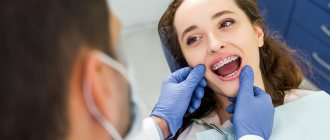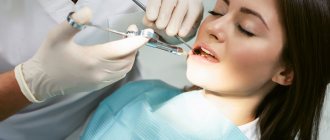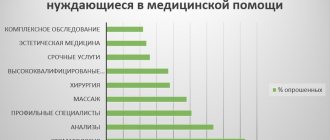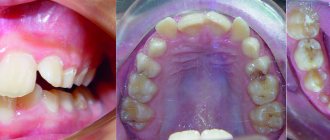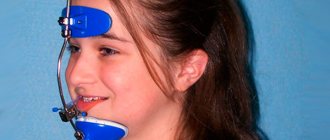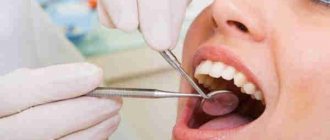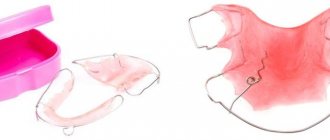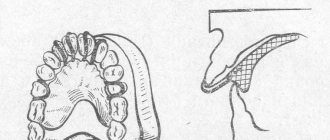Today it is very important to maintain the health and beauty of your smile. Regular visits to the dentist will help prevent serious diseases and correct existing problems. An experienced specialist will be able to identify the problem in a timely manner and eliminate it, thus saving your money. One of the best dentistry in Moscow is the Orthodont City clinic. We carefully approach each of your requests. Our clinic employs certified specialists who are attentive to detail and have the highest knowledge in the field of orthodontics, prosthetics and implantology.
Indications and contraindications for bite correction
Indications:
- Incorrect location of dental elements (displacement or rotation around the axis)
- Crowded teeth
- Large interdental spaces
- Displacement of the jaws relative to each other
Contraindications:
- AIDS, HIV
- Tuberculosis
- Blood or bone diseases
- Oncology
- Diabetes mellitus and thyroid pathologies
- Serious mental disorders
Important: contraindications to orthodontic treatment are identified by a specialist according to the patient. Therefore, you should definitely inform your doctor if you have any health problems. The desire for ideal occlusion can result in deterioration of health for a person burdened with the listed diseases.
Orthodontic treatment with aligners is the most comfortable, fastest and most invisible to others!
I would like a consultation on orthodontic treatment with aligners!
However, there are also cases when the patient is satisfied with everything in his smile, but orthodontists strongly recommend that he correct his bite. This is due to the fact that incorrect positioning of teeth can cause serious problems not only with the patient’s teeth themselves, but also with health:
- Poor chewing of food due to loose teeth contacts is often the cause of stomach ulcers and diseases of the gastrointestinal tract.
- Malocclusion is an ideal environment for the development of periodontitis. With this disease, infections dominate the human oral cavity, often spreading to internal organs.
- In addition, there is a constant unpleasant odor in the mouth. Even if you brush your teeth often and use mouth fresheners.
- Malocclusion always affects the temporomandibular joints (TMJ). As an adult, a TMJ problem will cause many negative symptoms, such as severe headaches.
This is why orthodontists sometimes prescribe orthodontic treatment for malocclusion, even if the smile visually looks perfect.
Let's start with pediatric orthodontics. Many problems with a child’s teeth begin in early childhood and develop in kindergarten and early school age, but parents are in no hurry to take their child to a pediatric orthodontist. Why? Because many parents have this opinion:
The essence and methods of orthodontic correction
The goal of treatment is to physically move the elements of the dentition into the desired position or change the position of the jaws.
The essence of the process is the creation of a driving directional force that is able to move the teeth and jaws into the correct position. To generate such a physical impact, there are several methods and devices used in the arsenal of orthodontics:
- myogymnastics;
- records and trainers;
- aligners (dental aligners);
- bracket systems;
- surgical intervention.
Note: the choice of a specific option is made by an orthodontist after a thorough diagnosis. The examination is carried out visually and using diagnostic equipment. The most informative are studies using a computed tomograph (3D image of the jaws and facial skeleton) and telex-rays. These methods allow the doctor to assess the condition of the dentofacial apparatus and the anatomical features of the joints, teeth and their roots, bone and soft tissues.
Prices for orthodontic treatment at Novosty
| Name | Cost, rub. |
| Primary treatment and diagnostic appointment with an orthodontist | 1000 rub. |
| Repeated appointment with the orthodontist | — |
| Routine observation by an orthodontist | 500 rub. |
| Taking an impression of one jaw and making a plaster model | 750 rub. |
| Correction and activation of orthodontic equipment | 500 rub. |
| Grinding one tooth | 200 rub. |
| Interproximal separation of one tooth | 200 rub. |
| Application of an occlusal pad | 500 rub. |
| Schwartz removable plate apparatus with two-section screw | 20,000 rub. |
| Removable plate apparatus with three-section Bertony screw | 23,000 rub. |
| Hawley removable plate apparatus without screw | 15,000 rub. |
| Removable plate apparatus Korn with bite pad | 8000 rub. |
| Tugarin's fixed plate apparatus | 8000 rub. |
| Removable functional apparatus Persin, Andresen, Francel | 25,000 rub. |
Open full price list
Stages of treatment
Orthodontic therapy involves several stages:
- diagnostics (visual and hardware);
- selection of an orthodontic device and development of a treatment regimen;
- sanitation of the oral cavity (elimination of dental and periodontal diseases, professional cleaning);
- installation of the selected fixed appliance on the patient’s teeth (or familiarization with the principles of fixing removable devices);
- wearing an orthodontic device;
- removal of the device;
- retention stage to consolidate the achieved results.
Attention: the duration of the main and retention stages is set by the attending physician depending on the characteristics of a particular case. Failure to follow the recommendations may result in the teeth returning to their previous position.
Make an appointment
In order to make an appointment at the Orthodont City dental center, you must contact the clinic using the phone number listed in the “Contacts” section on the website. The administrator will certainly answer all your questions and also make an appointment with the doctor. To begin with, the patient is scheduled for an initial examination to receive a consultation at a convenient time. A visual examination will enable the doctor to obtain general information about the health of the patient’s teeth and oral cavity.
The dental center in Moscow “Orthodont City” provides high-quality service, and, as a result, positive reviews from satisfied patients. Get to know us better and you will see for yourself.
You can make an appointment with us by phone: +7 or using a special form on our website.
Myogymnastics
This correction method is functional and involves training the facial and chewing muscles that keep the jaw system in the correct position. The exercises are effective when the child is between 3 and 5 years old. At an older age, myogymnastics is used as an additional method of correction, i.e., simultaneously with wearing removable or fixed orthodontic devices. The condition for the effectiveness of using the described method is the regularity of the exercises. Therefore, the main burden in treating young children falls on their parents.
Records and trainers
These devices are removable. Plates are used in children during the period of primary and mixed dentition. The design consists of a polymer plate adjacent to the upper palate, with a metal arch built into it, which is fixed to the teeth. Some models have elements that allow you to change the size of the record. Samples of plates for children under three years of age resemble a pacifier. Details of this design prevent the jaws from closing incorrectly. Trainer
is an orthodontic mouthguard for both jaws, on the inside of which grooves for teeth are applied. When putting on the trainer, the dentofacial apparatus takes the correct anatomical position, the muscles get used to this state (“train”) and subsequently themselves hold the jaws in the desired position.
Aligners (aligners)
Aligners
– a progressive and quite comfortable method of correcting pathologies of the dental apparatus of minor and moderate severity. This is a transparent plastic product that is worn over the teeth. For each patient, several sets are individually manufactured, each of which differs from each other by a slight change in geometric parameters. The patient independently changes the aligners in accordance with the treatment regimen, the teeth gradually move into the desired position. The most relevant models are those specially designed for children and adolescents, for example, FlexiLigner (“flexics”) and KidsLight, as well as universal Invisaling aligners.
Braces
Fixed orthodontic structures. They are classified according to several defining characteristics:
- positioning location. They can be vestibular (fixed on the outer side of the dentition) and lingual (installed on the inner side);
- method of attaching the power arc to the bracket pads. They are divided into ligature (fastening using ligatures - plastic rings or wires) and non-ligature (attached with small clip-locks);
- material of manufacture. The most popular are metal and ceramic products.
According to experts, the following models are considered the most popular:
- lingual non-ligature metal: WIN, INCOGNITO;
- vestibular non-ligature metal: Damon Q, H4;
- vestibular non-ligature ceramic: Damon Clear;
- vestibular metal ligatures: Biomim, Victory;
- vestibular ligature ceramic: Advanced, Hype.
Surgical orthodontics at NKclinic
In case of complex malocclusions, significant deformation of the jaws, when the patient has a strongly protruding chin or a gummy smile, treatment is carried out using orthognathic surgery. The word “orthognathic” is formed from the words “straight” and “jaw”. In practice, this means that the purpose of this operation is to align the contours of the dental system.
There are skeletal deformities in which the use of orthodontic structures (Invisalign, external and lingual braces) or orthopedic restorations (veneers, crowns, feldspathic onlays, luminars) does not allow achieving the desired and correct bite.
Surgery
This method is used in very complex cases when other methods cannot guarantee the effectiveness of the correction.
These are the situations:
- the dental arch(s) are significantly deformed;
- There is a serious disproportion between the upper and lower jaws.
Surgery is necessary to form the correct position of the jaw bones and rotate the teeth around their axis. Often surgery is performed as a preparation for a hardware course of therapy. For example, removal of excess teeth in order to create free space for the movement of teeth, plastic surgery of the frenulum of the tongue.
Indications for correction using transparent braces
There are various dental problems for which correction with transparent aligners is indicated:
- Tooth displacement;
- Gaps between teeth;
- Deep bite, large overlap of upper incisors;
- Overbite, too large lower jaw;
- Cross bite;
- Incorrect centerline of the dental arch.
Thanks to the rapid development and modern developments in the field of dentistry, the orthodontic center will give you the smile of your dreams. And if not so long ago these were uncomfortable devices with metal wires, today we can offer patients orthodontics without discomfort. Advantages of aligners:
- Removable function makes the treatment process easier;
- A successful result is ensured by the most painless treatment process;
- Clear aligners prevent any clenching or discomfort in the jaw as they fit perfectly;
- Since the device can be removed and put on independently, the formation of irritating odors that may occur in the mouth is reduced, as it is possible to take care of the oral cavity.
How is the cost of orthodontic therapy determined?
The price of an occlusion correction course for different patients can vary significantly.
The final cost depends on the following factors:
- volume of diagnostic studies. Thus, diagnostics for therapy using aligners and plates are much cheaper than those when planning treatment using braces;
- the type of therapy chosen by the doctor (plates, aligners, braces);
- models of orthodontic apparatus. The cost of products may vary significantly;
- complexity of the clinical case. The more complex the defect, the longer the treatment will take.
Orthodontic treatment with aligners is the most comfortable, fastest and most invisible to others!
Orthodontic treatment with Star Smile aligners is truly the most comfortable for you today and invisible to others.
The result of orthodontic treatment is always 100%. And - we predict! Star Smile orthodontists work in more than 70 cities of Russia, and we can offer you competent, detailed consultation in your city!
Do you want to consult on the problem of orthodontic treatment? We promise that after treatment with aligners you will forever forget about the malocclusion, which now causes you discomfort and, possibly, overloads the temporomandibular joint.
When to start treatment: recommendations from orthodontists
- If you notice that you or your child have problems with tooth growth or closure of the dentition, then you need to visit an orthodontist. This is a specialist who diagnoses and treats orthodontic problems.
- The child should be shown to a specialist even if there are no visual signs of orthodontic disease. This should be done at 3–4 years of age, when the so-called “deciduous” bite has formed, i.e. all (or almost all) milk teeth have erupted.
- Orthodontic treatment should begin as early as possible. Even if the baby is still small and it is too early for him to get braces, you can start correcting the bite in other ways, which were mentioned in this article. It is possible that after the therapy, the use of more serious methods will not be necessary.
- Orthodontic treatment can be initiated at any age, even in adulthood. The effect will be achieved, only the duration of therapy will increase. This is due to the fact that after the formation of the skeleton is completed, the bone tissue becomes less elastic, so the movement of teeth in a given direction will be slower.
- Regardless of age, the patient must be psychologically prepared for a long and not always comfortable process. Having a positive attitude and motivation is the key to achieving the desired result.
Dental offers orthodontic treatment services in Moscow in one of its branches. We provide payment in installments for a course of therapy to correct the bite, and issue the necessary medical documents for processing personal income tax deductions. Our orthodontic specialists have high medical qualifications and improve their professional level in leading Russian and European dental clinics.
Branches of our orthodontic center are located in Moscow within walking distance from the metro:
- Art. Alekseevskaya (VDNKh district, etc. Mira), address: st. 3rd Mytishchiskaya house 3, building 2;
- Art. Shelepikha, address: Shelepikhinskaya embankment, address: building 34, building 1.
Pathology of teeth position or bite formation is not a death sentence. We are ready to begin treatment, regardless of the complexity of a particular clinical case. Our specialists are waiting for you!
From the experts
In addition to all the above recommendations, experienced orthodontists offer a number of tips based on practical observations:
- For adults, before installing braces, it is better to remove their wisdom teeth, even if they have not yet erupted, since there is a high risk of them being damaged by caries;
- When choosing a doctor, make sure that the examination is thorough. If the orthodontist suggests putting on braces right away, this is a bad sign. However, another recommendation indicates the low qualifications of the specialist - he suggests waiting to start treatment. Most likely, he does not understand how to solve your problem;
- it is very important to treat all teeth before correcting the bite; in addition, you must learn how to clean them correctly so that while wearing braces the enamel does not become caries;
- Soft tissue adjustments may be required before treatment. You should not be afraid of this; if the doctor suggested performing the procedure, then it is really necessary.
Skeptics believe that correcting a bite in adulthood is useless, and braces are only effective on children’s teeth. This is not a completely correct opinion, but in some ways they are right:
- more significant pressure has to be exerted on the teeth of an adult, which leads to painful sensations at the initial stage;
- some teeth have to be removed to make room for others;
- Bridges and crowns have to be removed during treatment, which also does not add pleasant moments to the procedure.
